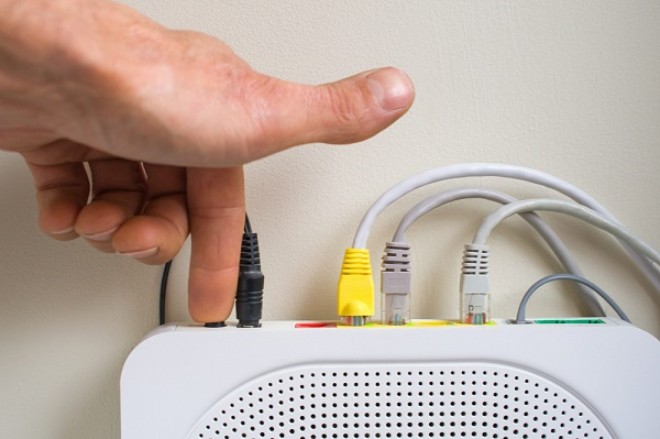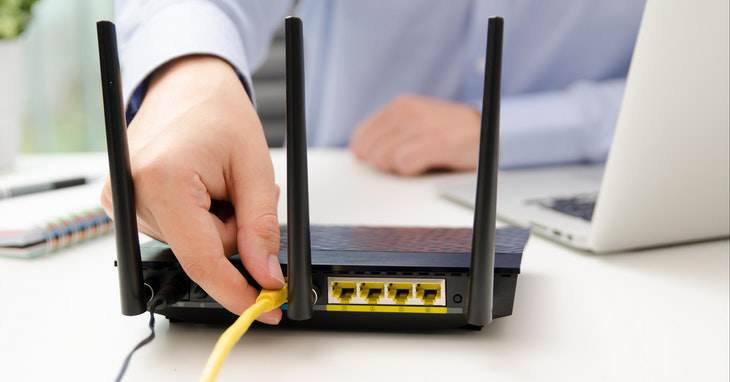Many people believe that turning off your WiFi modem daily will improve its performance and data transmission strength. But is this really necessary?

Is it necessary to turn off your WiFi modem every day?
Routers are designed to handle continuous data processing. Leaving it on for extended periods can lead to a buildup of stored data, potentially affecting data transmission speeds and network performance.
Additionally, routers generate significant heat during operation. If this heat is not dissipated, it can cause the device to overheat, accelerating the aging of internal electronic components and reducing the router’s lifespan. It may also increase the likelihood of malfunctions.
For these reasons, some people recommend turning off your WiFi modem daily, preferably at night before bedtime. This practice allows the modem to rest, prevents overheating from continuous use, and saves energy.
Turning off your WiFi at night can also help you and your family detach from work and reduce late-night usage of laptops or smartphones. It provides peace of mind regarding potential WiFi radiation concerns.

However, it’s important to note that reputable international scientific and health organizations, such as the World Health Organization, the UK’s Health Protection Agency, Health Canada, and the Institute of Electrical and Electronics Engineers (IEEE), have stated that WiFi radiation does not pose a health risk to humans.
Turning off your router nightly could cause you to miss important and urgent notifications, as mobile devices like smartphones and tablets won’t be able to connect and update you with the latest messages, emails, etc.
Other smart home devices, such as security cameras, smart refrigerators, and smart TVs, may not function optimally or access all their features when the router is turned off. Additionally, frequently turning the modem on and off can significantly impact its lifespan due to the wear and tear on components like the power supply and capacitors.

The right approach: Instead of turning off your router daily, aim for a weekly reset, powering it down for about 30 minutes. This allows the router to rest and clear any accumulated junk data. You’ll likely notice an improvement in internet speed after rebooting.
Tips to enhance your router’s signal strength
– Choose the right location
In addition to regular resets, the placement of your router can impact internet speed. Avoid putting it in enclosed spaces like cabinets or near metal objects, as these can block or interfere with the signal, resulting in weak or unstable WiFi.
For optimal signal coverage, place your router in a central location in your home, away from walls or other obstructions. If you have a multi-level or semi-detached house, placing the router on the second floor can help the signal reach both upstairs and downstairs more effectively.

– Adjust the antenna
The router’s antenna plays a crucial role in signal transmission and reception. If your router has an adjustable antenna, you can improve the signal by tweaking its angle. Typically, a vertically positioned antenna enhances horizontal signal coverage, while a horizontal orientation improves vertical coverage.
For homes with a flat layout, consider positioning the antenna vertically. If you have a multi-level home, a horizontal orientation might be more suitable. Feel free to experiment with different angles to find the sweet spot for your specific home configuration and needs.
– Check your network cables
The quality of your network cables matters. Damaged or worn-out cables can impact signal transmission speed and stability. Regularly inspect your cables for any signs of breakage, looseness, or degradation, and replace or repair them as needed.
– Enable hidden network mode
Setting up a hidden network means your WiFi name won’t be visible to other devices, and a password is required to connect. This prevents others from detecting or attempting to connect to your WiFi, conserving resources. Be sure to set a strong password that’s not easily guessable.

































